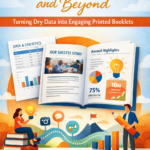Last Updated on January 7, 2026 by Rida Gul
Whether you like it or not, studying is integral to college life. A skill such as this requires patience, practice, and a lot of trial and error. However, some tips can help you. By following them, you’ll be able to select the best study method. Besides, some can assist you if you take an engaging or uninteresting class.
It is far too familiar for people to believe that studying long hours is the key to being an A-plus student. Despite this, research shows that highly successful students study less than their peers — they learn more effectively. Teachers can help all students maximize their study time by sharing research-proven techniques. Let’s take a deep dive into some of them.
Table of Contents
Take On Your Toughest Assignments First
Let’s face it: Some subjects appeal more to you than others. Ensure you save your most challenging tasks until the end of your studies if you want to do things smartly. Prioritize the most complicated tasks. When you leave the most difficult tasks for last, they will loom over your head during the entire study session.
Furthermore, you will feel more positive about your academic pursuits if you end with your favorite assignments. A positive attitude will help you stay focused during your next study session.
Don’t Overdo One Topic
Daily learning can improve your knowledge to a sufficient level, but if you try to learn the entire book in one day, you may get fatigued and sleep deprived. You can’t ingest the whole coursework in one sitting.
Therefore, it’s best to break down your chapters or topics into small chunks, as this is an excellent way to learn and suitable for long-term memory. As a result, you will be able to accomplish something productive.
Spread Your Study
It’s a pity that cramming doesn’t work, as it would make life far more straightforward. When you cram the material, it doesn’t have time to transfer to long-term memory. As with a party space, short-term memory is where you store information for a short time. As soon as the information reaches long-term memory, it becomes committed and is always there for you when you need it.
Transferring information from short-term memory to long-term memory requires time and repeated exposure. Although you may not pinpoint why spacing your studies is so beneficial, you will probably forget some of the material over time, then recall it again when you return to your books. The information becomes more ingrained in long-term memory due to increased exposure.
Take Notes in Class
The topics your teacher discusses in class are essential to your studies. Thus, it’s wise to take detailed notes. You can become a better note-taker by following these tips:
- Focussing on the main points.
- Use shorthand whenever you can.
- Avoid writing all the details down if you do not have time. Instead, you can write a keyword or a name. You can refer to your textbook to elaborate on these topics after class.
- Ensuring you use the same organization system every time you take notes to maintain consistency.
Writing your notes by hand may be beneficial since you will be more likely to recall the information. Typing, however, can help you become more organized and faster. Making notes during a lecture is effective because you must pay close attention to what the lecturer says.
Don’t Forget to Sleep
Although it sounds simple, it’s not always easy to sleep when there’s so much to do. The brain undergoes physical changes during deep sleep. It grows new connections whenever you learn something new, allowing it to communicate with other brain cells.
Doing this strengthens your brain’s connections around what you’re learning. If you sleep after learning, the information will be wired into your brain more permanently and less likely to fade. The brain is like a tree. As a branch grows, sleep helps it develop leaves and little branches that will support and strengthen it.
A Little Practice Goes a Long Way
Many students experience test anxiety. Practice sessions are a good idea to prevent stress on exam day. With practice tests, you get a feel for the test environment and prepare yourself to be confident on the actual test.
Furthermore, suppose you have more practice tests under your belt. In that case, you will be able to identify your knowledge gaps quickly. Using online study tools will also enable you to track your progress and focus on areas where you have struggled. For example, you can check Harvard University documents for a valuable extensive list of study resources that’ll help you study better this year.
Know When to Stop
Getting too much of anything isn’t a good thing. Even though studying is essential, it shouldn’t take up all your time. Maintaining a social life, exercising regularly, and taking care of your other responsibilities are also crucial.
Stress can negatively affect your school performance and relationships if you spend too much time with your nose in the books. You may also not get enough exercise if you study too much. As a result, you may lose bone density or gain body fat.
Conclusion
Students who intend to excel in upcoming years should note these scientific observations and recommendations. You will be more productive and have an academic year filled with remarkable knowledge if you use these innovative techniques.
if you want to know about A Look at the Opportunities then please visit our Education Category.



























